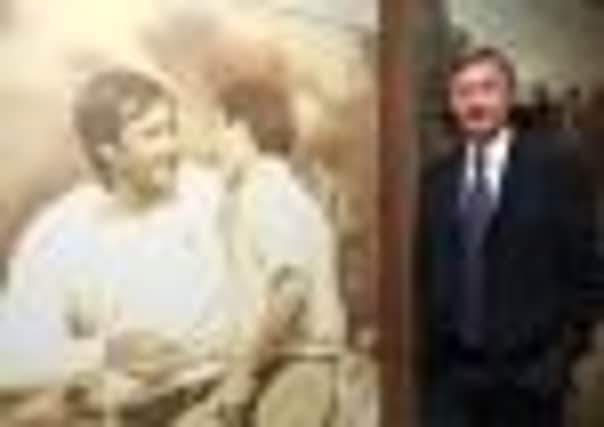Ryder Cup: Ken Brown thrilled by growth of event since his battles in US


A few hours later, sitting in the Media Centre, Ken Brown agreed that the event has been transformed since his five appearances, the last of which was as a member of the European side that won on American soil for the first time at Muirfield Village in 1987.
“I can’t believe how it’s changed,” he said. “In America, when we played out here, it was mainly passing interest from television. This week I can’t believe what I’m looking at.”
Advertisement
Hide AdAdvertisement
Hide AdBrown was referring to a plethora of hospitality units scattered around the tree-lined course and a merchandise shop which he described as golf’s equivalent of Ikea.


“The staging of the event is breathtaking,” added the Anglo-Scot, who is part of the BBC team here. “The players were always interested. If you got to a Ryder Cup team it was something big on the CV but, from the public’s point of view, certainly in America, there was just a moderate interest. The crowds were maybe 5,000-6,000 a day but here it’s 30-40,000. It all used to be pretty casual but now the Ryder Cup has drawn the world in. It is what golf is about.”
This week, the European players are dressed head to toe in all the best gear, on and off the course, but it wasn’t always so.
“We had some real rubbish,” said Brown, who won four times on the European Tour and once in America – the 1987 Southern Open. “The Americans always had the best stuff and Tony Jacklin had a big influence on that becoming the case for us. Tony wanted good bags, equipment and to go out on Concorde, that kind of thing.”
Brown sniggers at the memory of those supersonic flights. “Going Concorde was a pain because we had to go to New York and get a bus right across New York to get another plane and then fly to where we were playing,” he said. “It was great PR, but I remember thinking, ‘we got here quickly but we’re not going to get anywhere quickly on this bus’.”
Brown enjoyed playing against the likes of Raymond Floyd and Lanny Wadkins, both of whom went on to be US captains. “Whenever you looked Ray or Lanny in the eye, you knew they were keen to beat to you and you were desperate to beat them. The rivalry has always been there and it’s something you feed off. I lost more than I won but it was a fantastic event.”
Brown’s favourite memory of the biennial event is the 1995 singles clash between Seve Ballesteros and Tom Lehman at Oak Hill, where Bernard Gallacher led the Europeans to victory in a stunning last-day fightback.
“That was just fantastic to watch,” said Brown of an encounter eventually won by the American. “Seve was all over the place; Lehman was machine-like in every way. It was [Muhammad] Ali v [George] Frazier as far as golf was concerned. Seve was playing poorly and had played poorly all week. He should have lost every hole on the front nine but tried by hook or crook to keep the match alive.
Advertisement
Hide AdAdvertisement
Hide Ad“It was what the Ryder Cup was all about. There was drama before a ball had been hit and Seve must have thought, ‘I’ll sort this guy out’. Then there was a slight drama on the first tee, Lehman was told to keep his distance and not to shake his hand. Then you had an incident with a ball marker and all these miraculous recoveries.”
While Brown and most of his team-mates were total unknowns when they played in the match in America, the current crop of European players are well-kent faces with the home fans. The likes of Rory McIlroy, Luke Donald and Graeme McDowell, in fact, are almost as popular than some of the Americans. “The opportunities that players from the European Tour have had over here has been a huge thing,” added Brown. “In my day, an American person would not have had a clue who Ken Brown was. The Golf Channel has played a big part in making Graeme McDowell almost as famous as Tiger Woods.
“In my day, if you finished third in the European Order of Merit, you didn’t get into The Masters. Now they all play together, they are mates. There’s no scare factor or intimidation on either side.”